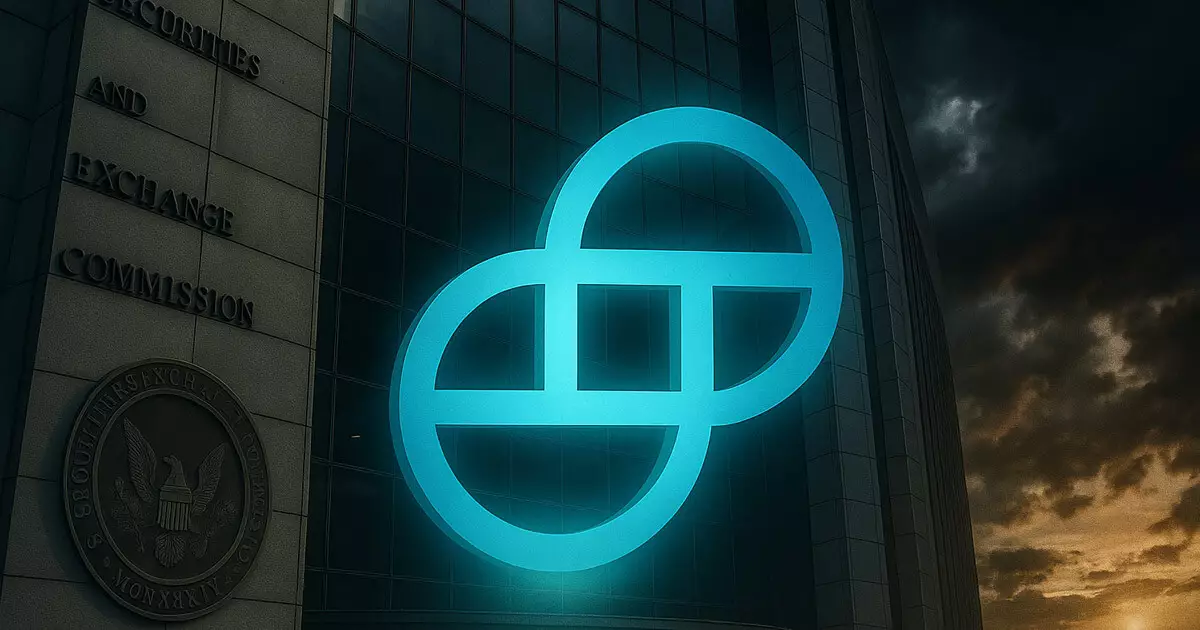In recent years, we have witnessed an alarming trend within regulatory agencies in the United States, and the case of Gemini versus the Commodity Futures Trading Commission (CFTC) epitomizes this issue. Gemini, a well-respected cryptocurrency exchange co-founded by Tyler Winklevoss, has filed a formal complaint alleging that the CFTC’s Division of Enforcement (DOE) has embarked on an unjustified and prolonged legal campaign against them. This situation raises critical questions about accountability, purpose, and ethics in government bodies tasked with oversight. Such a scenario is not merely a tale of corporate angst; it sheds light on broader implications for the financial landscape as regulatory bodies increasingly pursue trophy cases at the expense of genuine market integrity.
The Cost of Misguided Ambitions
Tyler Winklevoss’ accusation that CFTC lawyers exploited their positions to engage in “trophy-hunting lawfare” is not just an insult—it is a scathing indictment of a culture that prioritizes personal advancement over public service. The suggestion that public servants are pursuing self-interest while misusing taxpayer dollars is a betrayal of the very foundation of regulatory integrity. The CFTC’s role is to protect market participants and ensure fair practices, not to create high-profile cases that serve individual careers. This shift in focus, where regulatory victories become the primary benchmarks of success, jeopardizes not just one company but the entire ecosystem that relies on fair governance.
The Misuse of Judicial Resources
Gemini’s recent complaint highlights the apparent misuse of judicial resources by the CFTC, which reportedly spent millions pursuing a case against a firm they characterized as a victim of fraud. The enforcement actions taken against Gemini have raised the unsettling question of whether regulators prioritize public interest or gift-wrapped headlines. Unchecked enforcement practices seem to have evolved into a theater of public relations rather than a pursuit of justice. If acceptable regulatory practices can devolve into baseless punitive actions against legitimate firms, the ramifications could be severe, creating an environment where legitimate businesses feel threatened rather than protected.
The Culture of Fear and Compliance
Critics of the CFTC assert that the agency’s current culture fosters an environment of fear and compliance rather than transparency and collaboration. If the regulators’ primary motivation is to secure their positions and accolades, how can we expect them to apply the law impartially? The Winklevoss brothers’ assertion that enforcement agents have spent years targeting them without presenting solid proof speaks volumes about the potential systemic faults within regulatory bodies. For entrepreneurs, such uncertainty creates a chilling effect on innovation, where the fear of regulatory harassment may outweigh the allure of profit and progress.
Challenging the Status Quo in Financial Regulation
The accusation that CFTC enforcement team members have focused more on “scoring a public victory” than adhering to due process underscores a crippling failure in the regulatory landscape. Substantial reforms are urgently needed to reorient regulatory focus back toward public welfare rather than political posturing. The Winklevoss’s demand for a reevaluation of the agency’s internal culture and structure resonates with a growing consensus that systemic reform is required to ensure accountability and fairness in enforcement.
An Echo of Broader Patterns
Jack Baughman, a leading trial attorney, echoed the sentiments of Gemini, suggesting that arrogance and a lack of understanding often characterize regulators across various agencies. This commentary strikes at the heart of a pervasive issue: the disconnection between regulators and the industries they are supposed to oversee. If agencies employ individuals devoid of industry knowledge, it risks creating an environment rife with misunderstanding and unjust actions, further exacerbating the animosity between regulators and the companies they scrutinize.
Call for Action: Restoring Trust in Regulatory Bodies
The call for reform from Gemini should not only be seen as a self-serving maneuver but rather as an appeal for restoring the integrity of financial regulation. When the enforcers of our financial ecosystem pursue personal agendas at the expense of the very entities they are meant to protect, the trust in market mechanisms erodes. This discontent demands legislative action, not just within the structure of the CFTC but as a clarion call for regulatory bodies to recommit to their original purpose: to enable fair markets and to shield innocent parties from the consequences of fraud perpetuated by others. The future of cryptocurrency and, by extension, the broader financial market may depend on tackling these systemic issues head-on.

